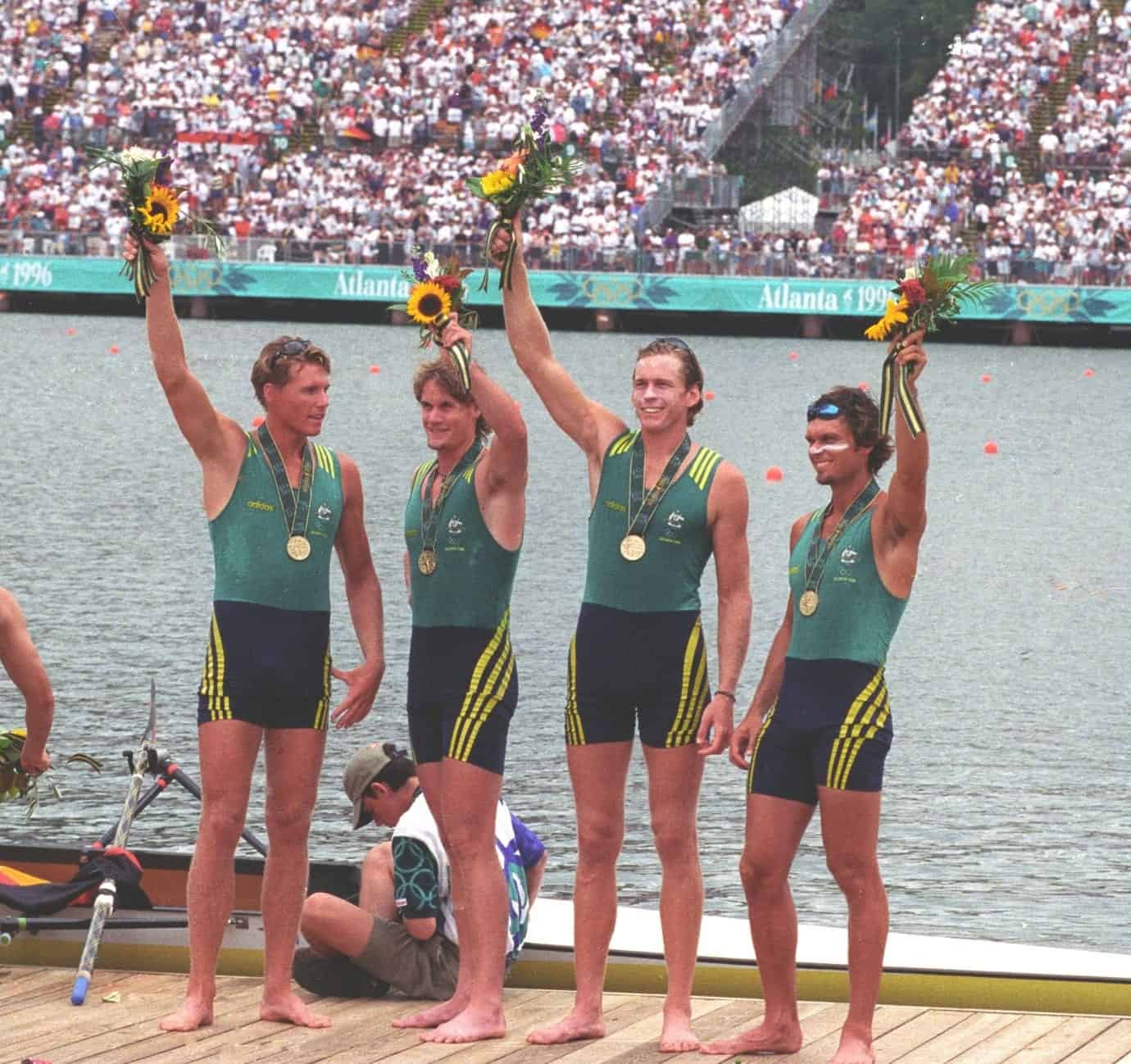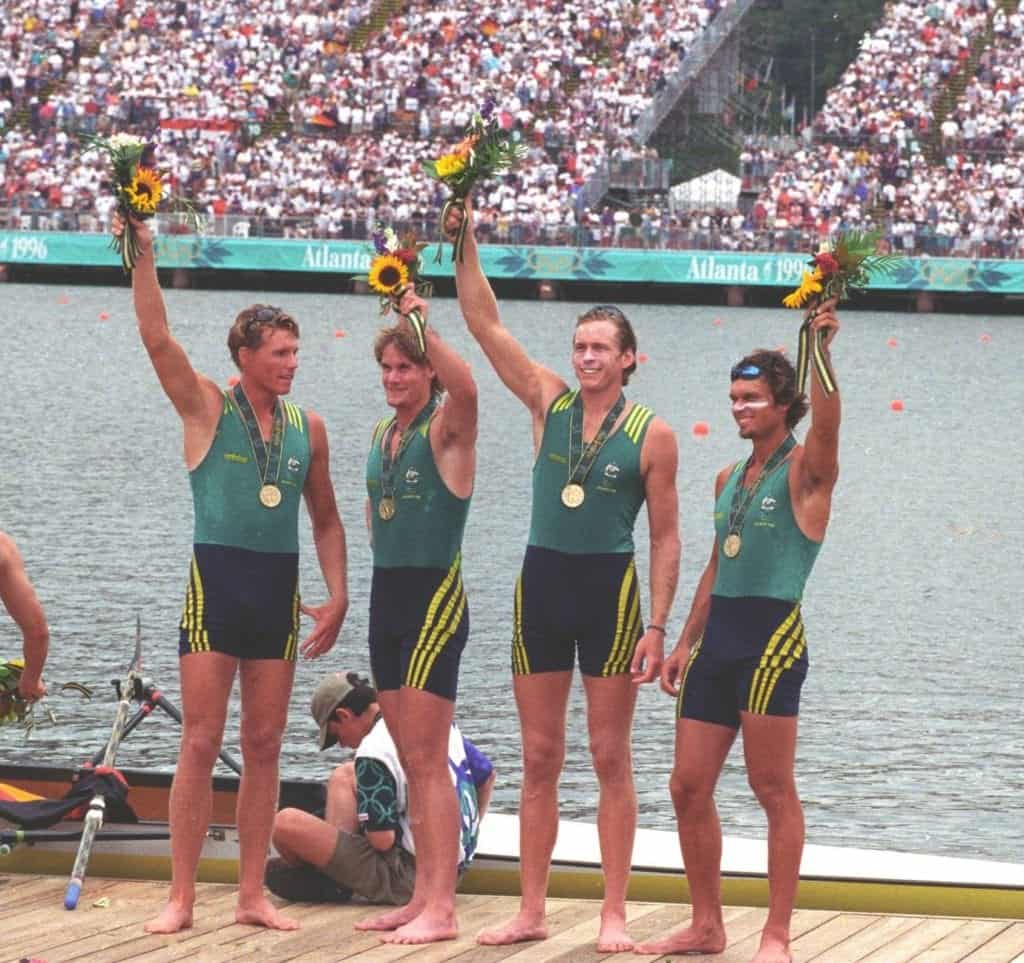This case study was extracted from “Team Culture: Is it making or breaking your team?” available for purchase now on Amazon.
 Here in Australia, sport is part of the fabric of our society. Growing up, few achievements are more significant than to be part of a championship high school sports team. The relative glory this brings from the accolades of the past students who relive their experiences through to the younger generation of champions, to the proud parents, whose children must have inherited their wonderful athletic genes – everyone loves a winner. As part of my high school rowing team, I dreamt each year as I progressed through the age groups, about the opportunity to win the championship race, aptly named the ‘Head of the River’. What made the dream even more poignant was the fact that in my senior years of school, I was hoping to be part of the crew who would break the losing drought for our school. Not since 1948, when the race was contested in four man boats, had my school won the prestigious event. In 1955, the event was contested in eight man boats and this was the race I now found myself a part of.
Here in Australia, sport is part of the fabric of our society. Growing up, few achievements are more significant than to be part of a championship high school sports team. The relative glory this brings from the accolades of the past students who relive their experiences through to the younger generation of champions, to the proud parents, whose children must have inherited their wonderful athletic genes – everyone loves a winner. As part of my high school rowing team, I dreamt each year as I progressed through the age groups, about the opportunity to win the championship race, aptly named the ‘Head of the River’. What made the dream even more poignant was the fact that in my senior years of school, I was hoping to be part of the crew who would break the losing drought for our school. Not since 1948, when the race was contested in four man boats, had my school won the prestigious event. In 1955, the event was contested in eight man boats and this was the race I now found myself a part of.
In an age where the wealthier, private schools began purchasing the best boats money could buy, and full time professional coaches who dedicated most waking hours to improving their crews, my school remained more amateur in its approach. Without the funds to compete with new technology and equipment, as well as the other schools being more thorough in their preparation, we found ourselves unable to break the drought in the Head of the River race. Not only did we fail to win, we managed to come last out of all the crews competing. The harsh realization of this is that you don’t need to practice or train hard to come last. You could do nothing at all, turn up to race and come last. We did train hard, we put in hours and hours on the water and still came last. It was a tough experience for me, but one which shaped me as a future athlete in a very positive way.
The victorious crews were the teams who were often in the top three whilst we occupied the same space in the finishing order as our school usually did. This forced us to ask the painful but obvious question; did we have a ‘losing culture’ and had our opponents found and cultivated a ‘winning culture’?
Quoting legendary coach Vince Lombardi,
“Winning is not a sometime thing; it’s an all-time thing. You don’t win once in a while, you don’t do things right once in a while, you do them right all the time. Winning is habit. Unfortunately, so is losing”.
This was the first time I ever considered the concept of how a culture can help or hinder you, make or break your season. When I was young and a part of a culture I could not see what our issues were at the time. When I finished school, I was extremely fortunate to be approached by a coach of one of the most successful high schools in the competition. He was creating a team with the goal of competing at the Junior World Championships. He knew of my physical abilities as a rower and my testing results and felt I would be a valuable asset in his crew. My new coach asked three other of my fellow high school competitors from other schools, whom he felt would be a great mix of rowers to also be in the boat. My coach had a vision and we all had the drive to put this into action.
To be selected as the Australian crew to represent at the World Championships you had to win every selection race you participated in. We trained with this purpose in mind, with new equipment, new boats and a professionally managed environment within our new rowing club that my new coach formed several years earlier. What struck me as most different about this club was the expectation of success. When we won a race, there was no fanfare. My coach would simply say, “Well done, now the next race is at 4pm today – this is what we are going to do to prepare.”
To not celebrate seemed a bit foreign to me. I was exposed to a new culture, previously unknown to me. However, my coach had a bigger vision than winning State Championship races. My coach was accustomed to success. It was what he expected and what he taught us to expect.
 Eventually we learned about the correct technique and fostered a terrific team chemistry, which can be easy when you’re a winning team. Our small group had a winning culture and one I learnt would be hard to replicate in the years to come. It would be more than six years before I felt I was part of a team whose culture was strong enough to fend off adversity and perform at the highest level.
Eventually we learned about the correct technique and fostered a terrific team chemistry, which can be easy when you’re a winning team. Our small group had a winning culture and one I learnt would be hard to replicate in the years to come. It would be more than six years before I felt I was part of a team whose culture was strong enough to fend off adversity and perform at the highest level.
As participants or spectators, most people know of or have been involved with two distinct types of teams. The first is the team of champions: a team with highly skilled individuals who are motivated and hardworking. All are stars in their own right. The other type of team is the champion team: a team that is bonded together through a strong culture. In this team, 4 + 4 always equals more than 8. A team where the individuals are not the stars, the team is.
Fast forward another five years and again in the space of two years, I had experience with both of these types of teams. The 1995 World Championships were held in the qualifying year for the 1996 Atlanta Olympics. I was part of a team of individuals who had all performed well enough to warrant selection in the boat for Australia, which would race to be selected as the crew for Atlanta. On paper and in the lead up events to the 1995 World Championships all appeared to be on track to, not just qualify for the Olympics, but win a World Championship medal.
In a preparation regatta in Denmark for the World Championships, we posted the fastest time of any crew in the world in our event. At the European Championships against all major competitors we won a silver medal. We had every right to believe this was going to be a great year for us. However, three weeks prior to the World Championships, our crew began to unravel. Looking back now, without a solid identity, clarity over our goals, framework of behaviors or even belief in the coach’s processes, members of the crew began to question things. Other team members started becoming complacent believing the result would look after itself. The independent mindset and stringent expectation of winning that had served us so well was beginning to work against us.
 As a younger athlete myself, I was involved but did not know enough about leadership or teamwork to alter our course and we literally steered the boat in a direction which at the World Championships saw us finish in eighth. We qualified in the second last place for the 1996 Olympics and whilst all was not lost, the harsh reality was that we let a massive opportunity slip past us. To blame it on our team culture and slack standards as well as lack of accountability was something that I could only do after being part of a team whose culture was dramatically different. Hindsight and maturity is a wonderful thing.
As a younger athlete myself, I was involved but did not know enough about leadership or teamwork to alter our course and we literally steered the boat in a direction which at the World Championships saw us finish in eighth. We qualified in the second last place for the 1996 Olympics and whilst all was not lost, the harsh reality was that we let a massive opportunity slip past us. To blame it on our team culture and slack standards as well as lack of accountability was something that I could only do after being part of a team whose culture was dramatically different. Hindsight and maturity is a wonderful thing.
A new and improved culture was what we all had to strive for and achieve if we hoped for our team’s performance to be its best when it mattered the most. For us, this was to be at peak performance for the 1996 Atlanta Olympics. To create this improved culture in our crew meant healing the wounds suffered from our collective 1995 experiences. In selecting the 1996 crew, there were two changes made. The selectors changed one athlete and they also changed the coach. On the first week of training in preparation for the 1996 Olympics, my new coach facilitated an honest and open feedback session between the new crew members, three of which had been involved the previous year. A shift in culture was beginning to take place. My coach encouraged us to say what we wanted, with the goal of unifying our belief system and bolstering solidarity, moving forward as a new and united team. I remember this session well and it was not an easy session to be part of. Hearing honest feedback from others in your team is hard to face. Knowing truthfully what others think of you is always potentially confronting. Even hearing the ‘good stuff’ can be hard to reconcile.
However, we committed to this process and trusted the results that we were endeavoring to create. We began to explore different culture mindsets. We established our new goals which started the process of creating an environment of respect, honesty and trust in each other. Doing little things such as sharing weekly formal meals together, spending time away from our sport, learning about who we were and the best way to cooperate were all factors in proactively building a new dynamic for the crew.
In our preparations, we competed in similar regattas to previous years and achieved similar results and rankings. The big difference was we did not fragment and fall apart; instead we adhered to our established frameworks set earlier and entered the Olympic competition in great physical and mental shape. Our crew made it through the qualifying rounds to win a place in the Olympic final. Drawn next to the 1992 German Olympic Champions, we started the race as fast as we could with the goal of being even at the 500 meter mark and positioned in a medal winning spot by the half way, 1,000 meter mark. Unfortunately, this plan did not play out and instead we were second last 1,000 meters out. Having discussed a contingency plan with my crew, we put this into action and sprinted the final 1,000 meters to the finish line, at a pace usually reserved for the final 500 meters. As we gathered momentum from a determined attitude instead of perfect technique, we began to close in on fourth spot and drew level with the Bronze medal position with roughly 100 meters of the race to go. The Italian crew, who were level with us in equal third, were the world record holders and current dual World Champions. But we had momentum and with two strokes of the race to go, we struggled past them by a fraction of a second and collapsed into the Bronze medal winning position. A victory is only a victory though, if potentials have been achieved and the members of the team are internally satisfied. In 1996 the bronze medal was a winning result for us.

Through the different themes and mindsets our teams went through, ultimately we realized that if you want to succeed then the team culture must adapt and refine itself in order to accommodate new attitudes and ways of thinking. In today’s workplace, teams create productivity, service delivery and technological improvements. Teamwork has become the organizational structure of choice. In my 14-years’ experience as a Corporate and Sports Team Consultant, I have noticed large variations in the levels of team performance. It is these variations that we will explore and dissect in order to discover the reasons behind differing performances.
What made us a winning team, more than anything else, was the new culture we developed early in the defining stages of our team’s development. This leveraged into a strong emotional bond and chemistry, which sustained us as a crew through a difficult final race. The crew marked a greater appreciation and recognition of how teams form, reform and develop over time with the right leadership from the coach. Developing a winning culture and phenomenal team performances is not a rite of passage; instead it is a process, which requires deliberate planning, careful execution, a steadfast focus on the results being achieved and the small adjustments needed. From my perspective, coaches are defined as being great, when they are able to create productive, effective and winning cultures which can be sustained over time. We hope this eBook gives you the tools to create an exceptional culture for whatever team you are part of or lead.
This case study was extracted from “Team Culture: Is it making or breaking your team?” available for purchase now on Amazon.


